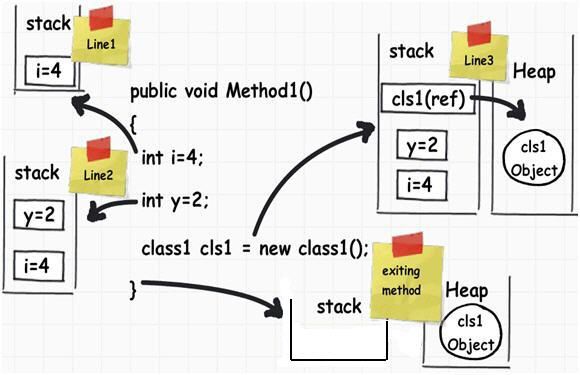- SQL自学:怎么创建视图
m0_74823471
面试学习路线阿里巴巴sql数据库
在SQL中,视图是一种虚拟表,它是基于一个或多个表的查询结果集。视图并不实际存储数据,而是在每次查询时动态生成结果。一、创建视图的语法(以MySQL为例)CREATEVIEWview_nameASSELECTcolumn1,column2,...FROMtable_nameWHEREcondition;view_name:是要创建的视图的名称。column1,column2,...:要在视图中显示
- python 爬取某乎某选全部内容
路笑笑
在发布了python爬取知乎盐选文章内容后,没想到居然这么快就要更新新的内容了。在下午思考第一篇python爬取知乎盐选文章内容的时候,其实就把自动爬取目录内的其他内容的方法想出来了,但是本来没想这么快更新的,哈哈。不过思来想去还是发出来吧,毕竟要不哪天就忘了。fromDecryptLoginimportloginfrombs4importBeautifulSoupimportreimportba
- Docker build 报错 “ Cannot find a valid baseurl for repo: base/7/x86_64 ” 解决
EricLi404
linuxDockercentosyumdockercentos7linux
错误内容dockerbuild阶段报错如下:SendingbuildcontexttoDockerdaemon2.048kBStep1/3:FROMcentos:7--->8652b9f0cb4cStep2/3:RUNyum-yupdate--->Runningin4e4e11d880f3Loadedplugins:fastestmirror,ovlDeterminingfastestmirror
- vue3使用vue-clipboard3 插件进行复制
不想上班只想要钱
vue前端typescriptvue.js前端typescript
vue3使用vue-clipboard3插件进行复制安装npmivue-clipboard3引入import{toClipboard}from'vue-clipboard3';复制函数copyText=(text:string)=>{returnnewPromise((resolve,reject)=>{try{//复制toClipboard(text);//下面可以设置复制成功的提示框等操作El
- Linux线程控制封装及线程互斥
z一一m
Linuxlinux
1.clone函数的使用#define_GNU_SOURCE#include#includeintclone(int(*fn)(void*),void*child_stack,intflags,void*arg,...);fn:子进程或线程的入口函数child_stack:子进程的栈地址,通常需要手动分配,栈的大小需要足够容纳子进程变量的局部变量和函数调用。flags:控制子进程或线程共享哪些资源
- 7种数据结构
就很对
数据结构windows
7种数据结构顺序表sqlite.hseqlite.c单链表linklist.clinklist.h双链表doulinklist.cdoulinklist.h链式栈linkstack.clinkstack.h队列SeqQueue.cSeqQueue.h树tree.c哈希表hash.c顺序表sqlite.h#ifndef__SEQLIST_H__#define__SEQLIST_H__typedefs
- 解决Centos使用yum命令报错“Cannot find a valid baseurl for repo: base/7/x86_64”问题
牛奶咖啡13
运维/测试centoslinux解决Centos仓库源失效InfluxDB作服务失败问题[Errno256]HTTPSError404
一、问题描述我们在使用Centos7.9使用【sudoyuminstallinfluxdb2】命令安装influxDB数据库的时候提示“LoadingmirrorspeedsfromcachedhostfileCouldnotretrievemirrorlisthttp://mirrorlist.centos.org/release=7&arch=x86_64&repo=os&infra=stoc
- hive相关命令
Wang·Br
bigdata笔记hive
hive相关命令1.hive-helphive-e:不进入hive交互窗口,执行sql语句hive-e"select*users"hive-f:执行脚本中sql语句#创建文件hqlfile1.sql,内容:select*fromusers#执行文件中的SQL语句hive-fhqlfile1.sql#执行文件中的SQL语句,将结果写入文件hive-fhqlfile1.sql>>result1.log
- 【Pandas】pandas Series plot.box
liuweidong0802
PandasSeriespandas信息可视化数据分析
Pandas2.2SeriesPlotting方法描述Series.plot([kind,ax,figsize,…])用于绘制Series对象的数据可视化图表Series.plot.area([x,y,stacked])用于绘制堆叠面积图(StackedAreaPlot)Series.plot.bar([x,y])用于绘制垂直条形图(VerticalBarPlot)Series.plot.barh
- Python自制文本编辑器
Xiaoqing461
python开发语言
Python自制文本编辑器。随便写的半成品fromtkinterimport*fromtkinterimportfiledialog,messageboxclassFindWindow:def__init__(self,parent):self.parent=parentself.find_window=Toplevel(parent)self.find_window.title("Find")s
- 端到端的NLP框架(Haystack)
deepdata_cn
NLP自然语言处理人工智能
Haystack是一个端到端的NLP框架,专门用于构建基于文档的问答系统,是实现RAG的理想选择。它提供了数据预处理、文档存储、检索和生成等一系列组件,支持多种语言模型和检索器。提供可视化界面,方便用户进行配置和调试;支持多模态数据,可处理文本、图像等多种类型的数据;具有可扩展性,可根据需求添加自定义组件。2020年在自然语言处理技术快速发展,对高效、易用且灵活的端到端NLP框架需求日益增长的背景
- PyQt6/PySide6 的 QSettings 类(配置管理)
燃灯工作室
Pysidepython开发语言
一、QSettings核心机制存储原理:基于键值对的持久化存储Windows:注册表路径HKEY_CURRENT_USER\Software\[组织名]\[应用名]macOS:~/Library/Preferences/[组织名].[应用名].plistLinux:~/.config/[组织名]/[应用名].conf基础代码框架:fromPySide6.QtCoreimportQSettings#
- Python Flask教程
cunchi4221
pythonjavawebajaxvueViewUI
WelcometoPythonFlasktutorial.Inpreviouslessonwehavelearntaboutpythonlambda.PythonflaskisanAPIthathelpsustobuildwebbasedapplicationinpython.Let’sgetstartedwithpythonflasktutorialforbeginnersnow.欢迎使用Pyt
- 自动化配置管理工具 SaltStack-03
Mr.Ron
linux自动化服务器运维
一、Jinja模板应用案例1、需求描述给之前通过saltstack安装好的lamp环境的apache修改配置文件,要求每个主机监听自己ip的80端口。2、实现思路如果通过单纯的修改配置文件根本无法实现,所以我们需要用到模板,将配置文件作为模板,通过定义模板中的变量来实现,并且需要引用grians参数。#编辑state配置文件[root@server~]#vim/srv/salt/prod/apac
- MyBatis传入参数的方式
二十六画生的博客
MybatisMySQLSpringMVCMyBatis传入参数方式
以下是传入两个参数的方式:第一种,使用@Param注解,定义参数别名,即定义映射关系DAO:publicListfindByUsernameAndPwd(@Param("userNameABC")Stringusername,@Param("passWordDEF")Stringpassword);SQL:SELECTFROMt_userandusername=#{userNameABC}andp
- 线代往事(1.2)为什么说如果AB=I,则BA=I?
duoyasong5907
数学(vip栏目)线性代数
参考mathstackexchange的回答。对于这句话:第一句话,首先由于III里的每个列向量都相互正交,所以I的值域是n维。而由于A
- Python预训练模型实现俄语音频转文字
啥都鼓捣的小yao
人工智能python音视频人工智能
Python预训练模型实现俄语音频转文字使用CommonVoice8.0、Golos和MultilingualTEDx的训练和验证分割对俄语的facebook/wav2vec2-xls-r-1b进行了微调。使用此模型时,请确保您的语音输入以16kHz采样。我们只需要装好三个功能包,写好你的文件路径即可使用!importtorchimportlibrosafromtransformersimport
- DCNV2 报错ImportError: dynamic module does not define module export function(PyInit__ext) 搜索路径问题
你好星酉君
深度学习pytorch人工智能
import_extas_backendTraceback(mostrecentcalllast):File"/yourpath/model/backbone/dla_dcn.py",line16,infrommodel.backbone.DCNv2.dcn_v2importDCNFile"/yourpath/model/backbone/DCNv2/dcn_v2.py",line12,inimp
- mysql 游标分页_MySQL采用游标分页的方式,“下一页”很好实现,那“上一页”如何实现呢?...
酸流
mysql游标分页
为让mysql达到最佳查询性能,我将分页查询改为cursor查询方式:select*fromreplywherereply_id>last_idlimit20orderbyreply_idASC;上面的last_id为本页最后一条回复的reply_id,这样就能实现“下一页”的查询了,但是“上一页”如何实现呢?我想过改变排列顺序select*fromreplywherereply_id,这样不管是
- 学习记录之游标翻页实现
sjsjsbbsbsn
Java学习之路项目实战技巧javamysqlredis
游标翻页本方案参考mallchat实现一.深翻页问题普通翻页前端一般会有个分页条。能够指定一页的条数,以及任意选择查看第几页,假设我们想查询第11页的内容传递过来的参数为:pageNo=11,pageSize=10对应的sql查询为:select*fromtablelimit100,10其中100代表需要跳过的条数,10代表跳过指定条数后,往后需要再取的条数。假设翻页到1w条,那我们要先扫描到这1
- 多阶段构建实现 Docker 加速与体积减小:含文件查看、上传及拷贝功能的 FastAPI 应用镜像构建
九不多
DockerdockerfastapipythonYOLO
本文围绕使用Docker构建FastAPI应用镜像展开,着重介绍了多阶段构建的Dockerfile编写及相关操作。借助多阶段构建,不仅实现了Docker构建的加速,还有效减小了镜像体积。1.Dockerfile内容以下是我们要使用的Dockerfile内容:#第一个阶段-构建应用FROMdocker.1ms.run/python:3.9ASbuilder#设置工作目录WORKDIR/app#复制依
- PTA:另类堆栈
悦悦子a啊
C语言PTA习题算法数据结构c++
在栈的顺序存储实现中,另有一种方法是将Top定义为栈顶的上一个位置。请编写程序实现这种定义下堆栈的入栈、出栈操作。如何判断堆栈为空或者满?函数接口定义:boolPush(StackS,ElementTypeX);ElementTypePop(StackS);其中Stack结构定义如下:typedefintPosition;typedefstructSNode*PtrToSNode;structSN
- 怎样才能把网页数据保存到网络上?
2301_79698214
htmljavascriptjava前端html5
要将网页数据存放到网络中,一般可以通过以下几种常见的方式:1.使用后端服务器自建服务器:你可以搭建自己的服务器,例如使用Node.js的Express框架或者Python的Flask、Django框架。以下是一个使用Flask框架存储数据到服务器的简单示例:pythonApplyfromflaskimportFlask,requestapp=Flask(__name__)@app.route('/
- python字符级差异分析并生成 Word 报告
myzzb
wordpython文字识别算法文本差异
importdifflibfromdocximportDocumentfromdocx.sharedimportRGBColordefanalyze_char_differences(text_a,text_b):"""分析两个文本的字符级差异:paramtext_a:第一个文本:paramtext_b:第二个文本"""matcher=difflib.SequenceMatcher(None,te
- SOFABoot-01-蚂蚁金服开源的 sofaboot 是什么黑科技?
后端java
前言大家好,我是老马。sofastack其实出来很久了,第一次应该是在2022年左右开始关注,但是一直没有深入研究。最近想学习一下SOFA对于生态的设计和思考。sofaboot系列SOFABoot-00-sofaboot概览SOFABoot-01-蚂蚁金服开源的sofaboot是什么黑科技?SOFABoot-02-模块化隔离方案SOFABoot-03-sofaboot介绍SOFABoot-04-快
- SOFABoot-00-sofaboot 概览
后端java
sofaboot前言大家好,我是老马。sofastack其实出来很久了,第一次应该是在2022年左右开始关注,但是一直没有深入研究。最近想学习一下SOFA对于生态的设计和思考。sofaboot系列SOFABoot-00-sofaboot概览SOFABoot-01-蚂蚁金服开源的sofaboot是什么黑科技?SOFABoot-02-模块化隔离方案SOFABoot-03-sofaboot介绍SOFAB
- Hive常用函数 - abs
Called_Kingsley
Hivehive函数
Hive常用函数-abs官方解释abs(x)-returnstheabsolutevalueofx个人理解就是返回函数括号内数字的绝对值。想要获取该数的绝对值的时候就用这个函数没错使用示例selectabs(-1);>1官方示例abs(x)-returnstheabsolutevalueofxExample:>SELECTabs(0)FROMsrcLIMIT1;0>SELECTabs(-5)FRO
- STM32八股【1】-----启动流程和startup文件理解
Invinciblenuonuo
stm32arm
启动流程知识点MCU上电复位。MSP从向量表第0个地址读取一个32位(2字节)的值并保存,该值为栈顶地址。PC计数器从第1个地址读取一个两字节的值并保存,该值为程序入口,一般是Reset_Handler。想了解FLASH地址映射可以看STM32八股【4】-----AHB地址映射__VectorsDCD__initial_sp;TopofStackDCDReset_Handler;ResetHand
- 查询数据库中第n行数据
weixin_44231698
一般情况下分页的时候是需要的关键字。Oracle中则是rownum,MSSQL中是top关键字,MySQL中是limit关键字。查第n条数据,如:(1)select*from(SELECTROWNUMrn,A.*FROMTABLEA)bwhereb.rn=n;(2)selecttop1*fromTABLEAwhereidnotin(selecttopn-1idfromTABLEA);(3)用mys
- 自定义kafka高效的protoStuff序列化
_夜渐凉
●JavakafkaprotoStuff序列化
Duang,最近搭建了一个自己的博客小破站,欢迎各位小伙伴来访吖:https://www.ares-stack.cn/blog_service/#/game目前序列化领域中,谷歌的protobuf应该是性能好,效率高的了,并且protobuf支持多种语言,可跨平台,跨语言但使用起来并不像其他序列化那么简单(首先要写.proto文件,然后编译.proto文件,生成对应的.java文件)protost
- 面向对象面向过程
3213213333332132
java
面向对象:把要完成的一件事,通过对象间的协作实现。
面向过程:把要完成的一件事,通过循序依次调用各个模块实现。
我把大象装进冰箱这件事为例,用面向对象和面向过程实现,都是用java代码完成。
1、面向对象
package bigDemo.ObjectOriented;
/**
* 大象类
*
* @Description
* @author FuJian
- Java Hotspot: Remove the Permanent Generation
bookjovi
HotSpot
openjdk上关于hotspot将移除永久带的描述非常详细,http://openjdk.java.net/jeps/122
JEP 122: Remove the Permanent Generation
Author Jon Masamitsu
Organization Oracle
Created 2010/8/15
Updated 2011/
- 正则表达式向前查找向后查找,环绕或零宽断言
dcj3sjt126com
正则表达式
向前查找和向后查找
1. 向前查找:根据要匹配的字符序列后面存在一个特定的字符序列(肯定式向前查找)或不存在一个特定的序列(否定式向前查找)来决定是否匹配。.NET将向前查找称之为零宽度向前查找断言。
对于向前查找,出现在指定项之后的字符序列不会被正则表达式引擎返回。
2. 向后查找:一个要匹配的字符序列前面有或者没有指定的
- BaseDao
171815164
seda
import java.sql.Connection;
import java.sql.DriverManager;
import java.sql.SQLException;
import java.sql.PreparedStatement;
import java.sql.ResultSet;
public class BaseDao {
public Conn
- Ant标签详解--Java命令
g21121
Java命令
这一篇主要介绍与java相关标签的使用 终于开始重头戏了,Java部分是我们关注的重点也是项目中用处最多的部分。
1
- [简单]代码片段_电梯数字排列
53873039oycg
代码
今天看电梯数字排列是9 18 26这样呈倒N排列的,写了个类似的打印例子,如下:
import java.util.Arrays;
public class 电梯数字排列_S3_Test {
public static void main(S
- Hessian原理
云端月影
hessian原理
Hessian 原理分析
一. 远程通讯协议的基本原理
网络通信需要做的就是将流从一台计算机传输到另外一台计算机,基于传输协议和网络 IO 来实现,其中传输协议比较出名的有 http 、 tcp 、 udp 等等, http 、 tcp 、 udp 都是在基于 Socket 概念上为某类应用场景而扩展出的传输协
- 区分Activity的四种加载模式----以及Intent的setFlags
aijuans
android
在多Activity开发中,有可能是自己应用之间的Activity跳转,或者夹带其他应用的可复用Activity。可能会希望跳转到原来某个Activity实例,而不是产生大量重复的Activity。
这需要为Activity配置特定的加载模式,而不是使用默认的加载模式。 加载模式分类及在哪里配置
Activity有四种加载模式:
standard
singleTop
- hibernate几个核心API及其查询分析
antonyup_2006
html.netHibernatexml配置管理
(一) org.hibernate.cfg.Configuration类
读取配置文件并创建唯一的SessionFactory对象.(一般,程序初始化hibernate时创建.)
Configuration co
- PL/SQL的流程控制
百合不是茶
oraclePL/SQL编程循环控制
PL/SQL也是一门高级语言,所以流程控制是必须要有的,oracle数据库的pl/sql比sqlserver数据库要难,很多pl/sql中有的sqlserver里面没有
流程控制;
分支语句 if 条件 then 结果 else 结果 end if ;
条件语句 case when 条件 then 结果;
循环语句 loop
- 强大的Mockito测试框架
bijian1013
mockito单元测试
一.自动生成Mock类 在需要Mock的属性上标记@Mock注解,然后@RunWith中配置Mockito的TestRunner或者在setUp()方法中显示调用MockitoAnnotations.initMocks(this);生成Mock类即可。二.自动注入Mock类到被测试类 &nbs
- 精通Oracle10编程SQL(11)开发子程序
bijian1013
oracle数据库plsql
/*
*开发子程序
*/
--子程序目是指被命名的PL/SQL块,这种块可以带有参数,可以在不同应用程序中多次调用
--PL/SQL有两种类型的子程序:过程和函数
--开发过程
--建立过程:不带任何参数
CREATE OR REPLACE PROCEDURE out_time
IS
BEGIN
DBMS_OUTPUT.put_line(systimestamp);
E
- 【EhCache一】EhCache版Hello World
bit1129
Hello world
本篇是EhCache系列的第一篇,总体介绍使用EhCache缓存进行CRUD的API的基本使用,更细节的内容包括EhCache源代码和设计、实现原理在接下来的文章中进行介绍
环境准备
1.新建Maven项目
2.添加EhCache的Maven依赖
<dependency>
<groupId>ne
- 学习EJB3基础知识笔记
白糖_
beanHibernatejbosswebserviceejb
最近项目进入系统测试阶段,全赖袁大虾领导有力,保持一周零bug记录,这也让自己腾出不少时间补充知识。花了两天时间把“传智播客EJB3.0”看完了,EJB基本的知识也有些了解,在这记录下EJB的部分知识,以供自己以后复习使用。
EJB是sun的服务器端组件模型,最大的用处是部署分布式应用程序。EJB (Enterprise JavaBean)是J2EE的一部分,定义了一个用于开发基
- angular.bootstrap
boyitech
AngularJSAngularJS APIangular中文api
angular.bootstrap
描述:
手动初始化angular。
这个函数会自动检测创建的module有没有被加载多次,如果有则会在浏览器的控制台打出警告日志,并且不会再次加载。这样可以避免在程序运行过程中许多奇怪的问题发生。
使用方法: angular .
- java-谷歌面试题-给定一个固定长度的数组,将递增整数序列写入这个数组。当写到数组尾部时,返回数组开始重新写,并覆盖先前写过的数
bylijinnan
java
public class SearchInShiftedArray {
/**
* 题目:给定一个固定长度的数组,将递增整数序列写入这个数组。当写到数组尾部时,返回数组开始重新写,并覆盖先前写过的数。
* 请在这个特殊数组中找出给定的整数。
* 解答:
* 其实就是“旋转数组”。旋转数组的最小元素见http://bylijinnan.iteye.com/bl
- 天使还是魔鬼?都是我们制造
ducklsl
生活教育情感
----------------------------剧透请原谅,有兴趣的朋友可以自己看看电影,互相讨论哦!!!
从厦门回来的动车上,无意中瞟到了书中推荐的几部关于儿童的电影。当然,这几部电影可能会另大家失望,并不是类似小鬼当家的电影,而是关于“坏小孩”的电影!
自己挑了两部先看了看,但是发现看完之后,心里久久不能平
- [机器智能与生物]研究生物智能的问题
comsci
生物
我想,人的神经网络和苍蝇的神经网络,并没有本质的区别...就是大规模拓扑系统和中小规模拓扑分析的区别....
但是,如果去研究活体人类的神经网络和脑系统,可能会受到一些法律和道德方面的限制,而且研究结果也不一定可靠,那么希望从事生物神经网络研究的朋友,不如把
- 获取Android Device的信息
dai_lm
android
String phoneInfo = "PRODUCT: " + android.os.Build.PRODUCT;
phoneInfo += ", CPU_ABI: " + android.os.Build.CPU_ABI;
phoneInfo += ", TAGS: " + android.os.Build.TAGS;
ph
- 最佳字符串匹配算法(Damerau-Levenshtein距离算法)的Java实现
datamachine
java算法字符串匹配
原文:http://www.javacodegeeks.com/2013/11/java-implementation-of-optimal-string-alignment.html------------------------------------------------------------------------------------------------------------
- 小学5年级英语单词背诵第一课
dcj3sjt126com
englishword
long 长的
show 给...看,出示
mouth 口,嘴
write 写
use 用,使用
take 拿,带来
hand 手
clever 聪明的
often 经常
wash 洗
slow 慢的
house 房子
water 水
clean 清洁的
supper 晚餐
out 在外
face 脸,
- macvim的使用实战
dcj3sjt126com
macvim
macvim用的是mac里面的vim, 只不过是一个GUI的APP, 相当于一个壳
1. 下载macvim
https://code.google.com/p/macvim/
2. 了解macvim
:h vim的使用帮助信息
:h macvim
- java二分法查找
蕃薯耀
java二分法查找二分法java二分法
java二分法查找
>>>>>>>>>>>>>>>>>>>>>>>>>>>>>>>>>>>>>>
蕃薯耀 2015年6月23日 11:40:03 星期二
http:/
- Spring Cache注解+Memcached
hanqunfeng
springmemcached
Spring3.1 Cache注解
依赖jar包:
<!-- simple-spring-memcached -->
<dependency>
<groupId>com.google.code.simple-spring-memcached</groupId>
<artifactId>simple-s
- apache commons io包快速入门
jackyrong
apache commons
原文参考
http://www.javacodegeeks.com/2014/10/apache-commons-io-tutorial.html
Apache Commons IO 包绝对是好东西,地址在http://commons.apache.org/proper/commons-io/,下面用例子分别介绍:
1) 工具类
2
- 如何学习编程
lampcy
java编程C++c
首先,我想说一下学习思想.学编程其实跟网络游戏有着类似的效果.开始的时候,你会对那些代码,函数等产生很大的兴趣,尤其是刚接触编程的人,刚学习第一种语言的人.可是,当你一步步深入的时候,你会发现你没有了以前那种斗志.就好象你在玩韩国泡菜网游似的,玩到一定程度,每天就是练级练级,完全是一个想冲到高级别的意志力在支持着你.而学编程就更难了,学了两个月后,总是觉得你好象全都学会了,却又什么都做不了,又没有
- 架构师之spring-----spring3.0新特性的bean加载控制@DependsOn和@Lazy
nannan408
Spring3
1.前言。
如题。
2.描述。
@DependsOn用于强制初始化其他Bean。可以修饰Bean类或方法,使用该Annotation时可以指定一个字符串数组作为参数,每个数组元素对应于一个强制初始化的Bean。
@DependsOn({"steelAxe","abc"})
@Comp
- Spring4+quartz2的配置和代码方式调度
Everyday都不同
代码配置spring4quartz2.x定时任务
前言:这些天简直被quartz虐哭。。因为quartz 2.x版本相比quartz1.x版本的API改动太多,所以,只好自己去查阅底层API……
quartz定时任务必须搞清楚几个概念:
JobDetail——处理类
Trigger——触发器,指定触发时间,必须要有JobDetail属性,即触发对象
Scheduler——调度器,组织处理类和触发器,配置方式一般只需指定触发
- Hibernate入门
tntxia
Hibernate
前言
使用面向对象的语言和关系型的数据库,开发起来很繁琐,费时。由于现在流行的数据库都不面向对象。Hibernate 是一个Java的ORM(Object/Relational Mapping)解决方案。
Hibernte不仅关心把Java对象对应到数据库的表中,而且提供了请求和检索的方法。简化了手工进行JDBC操作的流程。
如
- Math类
xiaoxing598
Math
一、Java中的数字(Math)类是final类,不可继承。
1、常数 PI:double圆周率 E:double自然对数
2、截取(注意方法的返回类型) double ceil(double d) 返回不小于d的最小整数 double floor(double d) 返回不大于d的整最大数 int round(float f) 返回四舍五入后的整数 long round
